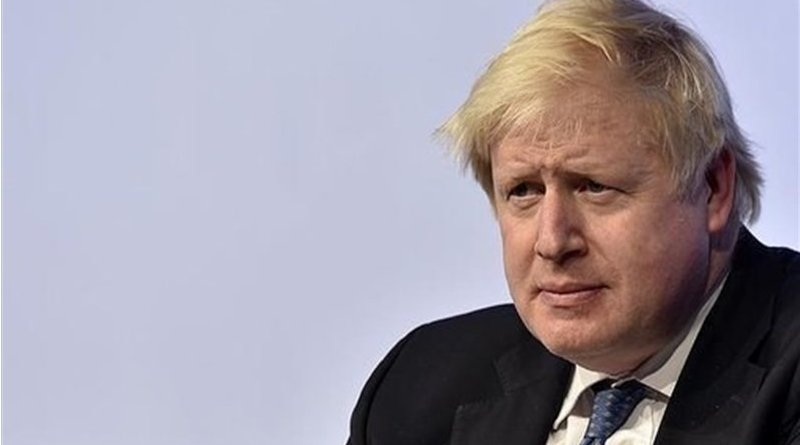Boris’ Bluster Undermined By Inconvenient Truths – OpEd
By Arab News
By Andrew Hammond
The UK’s multibillion-pound hospitality industry is springing back to life after a four-month coronavirus shutdown, but the country could yet be heading this autumn for a “perfect storm” of coronavirus case spikes and a hard, disorderly Brexit.
With the economy already in its worst downturn for 300 years, there is growing pressure on Prime Minister Boris Johnson to secure an EU trade deal, but the latest round of EU-UK negotiations broke up on Thursday, a day earlier than planned.
With significant differences remaining between London and Brussels, Johnson is scaling down expectations of what any Brexit breakthrough could deliver. The limit of his ambitions now appears to be what EU chiefnegotiator Michel Barnier calls a “bare bones” trade deal that strips out fundamental areas previously under discussion.
An example is the proposed future relationship on foreign, security and defense policy, which had been extensively previewed in the UK-EU “political declaration” last year. Mooted then was significant future cooperation, with the UK possibly being invited to participate in EU military initiatives and foreign minister meetings. Since then, the Johnson team has shifted position significantly, and even failed to provide negotiating texts in these areas.
This has left many across the EU frustrated; there is growing potential for UK and EU foreign policy positions to become misaligned, despite the largely complementary nature of their positions on many key global issues, from climate change to digital taxes, and trouble spots from North Korea to Iran.
Part of the reason for ditching this foreign policy agenda is the UK decision to prioritize future EU-UK market access and the trade relationship, given the hugely compressed period of time this year to do a deal. The EU has never agreed a trade accord, let alone a wider partnership agreement, so rapidly.
But there is a deeper reason for London’s change of Brexit negotiating strategy — its increasing emphasis on “global Britain” and ambition to look well beyond the EU, especially on the trade front.
Johnson often says he wants the UK to be a global power after Brexit, with one of the largest economies in the world, the second-biggest military budget in NATO, and one of the world’s two biggest financial centers. He has repeatedly stressed that he wants to rediscover the UK’s heritage “as a great global trading nation” with emerging markets and industrial economies.
London is therefore negotiating trade deals with a wide spectrum of countries, and has expressed interest in joining forums such as the Comprehensive and Progressive Trans-Pacific Partnership, an 11-member trade and investment group that the US may also join if Joe Biden is elected president.
This agenda has much appeal, especially for globally minded Brexiteers, but the devil could be in the detail.For example, the UK’s relationship with China has soured badly over a range of issues, including Hong Kong. Agreeing a favorable trade deal with Beijing will be challenging.
There has also been much fanfare over a potential new UK-US trade deal, which is understandable becauseWashington remains one of London’s closest allies. But there will be no agreement before next year at the earliest, when pro-Brexit Donald Trump may be out of the White House.
Johnson has also made clear that after Brexit the UK will continue to play a major role in international security. While London will be an international player through membership of forums such as the UN Security Council, what is now less clear is how big its renewed commitment to Europe will be.
Johnson has repeatedly said the UK is leaving the EU, not Europe. He also wants to continue, if not intensify, cooperation with EU partners in areas such as foreign affairs to keep the continent secure, and UK military personnel may remain for some time in Eastern Europe given the perceived threat from an emboldened Russia.
Johnson has said this potentially extensive web of security and defense relationships would be molded on a“bold, ambitious free-trade agreement with the EU” with “the freest possible trade on goods and services,” butthis commitment has now been rolled back.
This again underlines that while Brexit offers new opportunities for the UK to reinvent its world role, it also throws up significant new uncertainties. Despite Boris’s bluster, it will not be clear for years how successful his agenda will be, especially when UK relationships with China and the US may undergo significant change.
- Andrew Hammond is an Associate at LSE IDEAS at the London School of Economics

